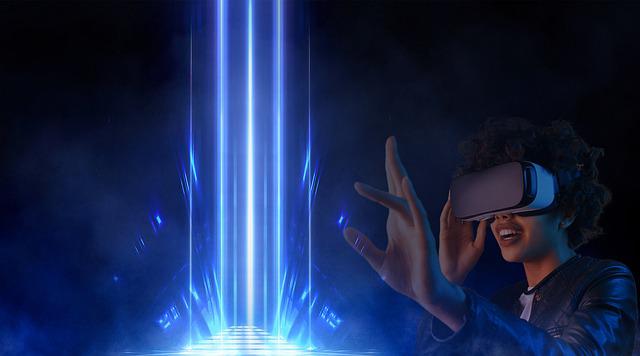Technology is changing the way we live, work and play. From driverless cars to virtual reality, our world is being reshaped by advances in technology and its applications. The future of technology is exciting and will change how we live and work in the coming years. Think how much your life has changed from ten years ago: we now have access to information at our fingertips through smartphones, computers, tablets and so on. Because of this, technology continues to evolve in ways that are more user-friendly and intuitive for us as humans. For example, voice recognition software has gotten much better over the years with digital assistants like Siri or Alexa. Virtual personal assistants like these two are here to stay because they make our lives easier by doing things like reminding us of appointments or keeping track of important contacts.
Virtual Reality will be all around us
VR headsets have grown in popularity in recent years. The next generation of headsets comes to the fore and makes the experience more immersive than ever before. This will result in a more social experience when VR is involved. Imagine attending a sporting event in VR or watching a movie on a big screen with your friends in a virtual theater. VR will be a much more social experience in the near future. Beyond that, VR has exciting applications in education and healthcare. For example, VR is being used to treat phobias by exposing patients to what they fear in a controlled way. VR can also be used to train people in skills. This includes training medical students in procedures that would otherwise be difficult to simulate. VR will in many ways become a more integrated part of our lives.

Driverless cars will become the norm
Driverless cars have been in the news lately, and for good reason: they’re likely to become a big part of our daily lives over the next decade. Major automakers are currently testing the technology and expect to have driverless cars on the road in the next five years. You may not be able to buy a fully driverless car just yet, but several models come with semi-autonomous features that will help you drive better, increase your car’s safety, and give you more time to do other things. while you are in the car. Beyond that, many experts expect driverless ride-sharing services to become the norm over the next decade, which could drastically change the way we commute. In fact, one report predicts that 20% of cars on the road will be driverless by 2030. This is exciting news for those who may not be able to drive themselves, which can expand their opportunities to get around and participate in society. The future of transport looks exciting.

Augmented Reality will be everywhere
Augmented reality is popping up everywhere, from classrooms to sporting events. But it will soon be everywhere, including all around us. In fact, a recent report predicts that AR will reach $98 billion in revenue by 2022! The ability to use AR in everyday life is improving, allowing us to overlay digital elements on our physical surroundings. Companies like Apple and Google are currently pushing the boundaries of augmented reality through their products, such as AR-equipped smartphones and smart glasses. Beyond that, AR will have many applications in other parts of our lives. For example, AR could be used in medicine to help doctors better visualize procedures, or in construction to show us what a building will look like when it’s finished. AR has enormous potential to improve our lives in a variety of ways.

Advances in healthcare
Over the next decade, technology is expected to help advance healthcare in a variety of ways, including increasing the accessibility and affordability of healthcare. We’ve already seen companies like Doctor On Demand offer in-home doctor visits, and HealthTap offers an online doctor search service. In addition to that, advances in artificial intelligence, machine learning and robotics are expected to play a significant role in healthcare. For example, AI could be used to diagnose medical conditions better than human doctors. Robots could be used to deliver medical supplies and perform surgeries. New developments in the way we store and analyze health-related data are also expected to drive advances in healthcare.

AI will help advance machine learning and robotics
Robotics and machine learning have great potential in the medical field. AI is expected to play a major role in advancing the field by helping doctors, nurses and other healthcare professionals make better treatment decisions. In addition to that, robotics and artificial intelligence are expected to play a significant role in healthcare by helping with tasks in hospitals and beyond. For example, robots can be used to deliver supplies to nurses, clean and sterilize medical instruments, perform complex surgery and much more. In addition to healthcare, robotics and artificial intelligence are expected to develop in other areas such as construction, agriculture and other industries. These fields are expected to benefit from advances in machine learning and artificial intelligence that will make them safer and more efficient.
Conclusion
These are just a few of the exciting ways technology will change the way we live and work in the coming years. The future of technology actually looks bright. The coming years promise to bring great advances in many areas, such as transportation, communication, and health care. Beyond that, the advances we make in technology will likely lead to new innovations that we can’t even begin to imagine now. The future of technology has endless possibilities and is something to be excited about.





